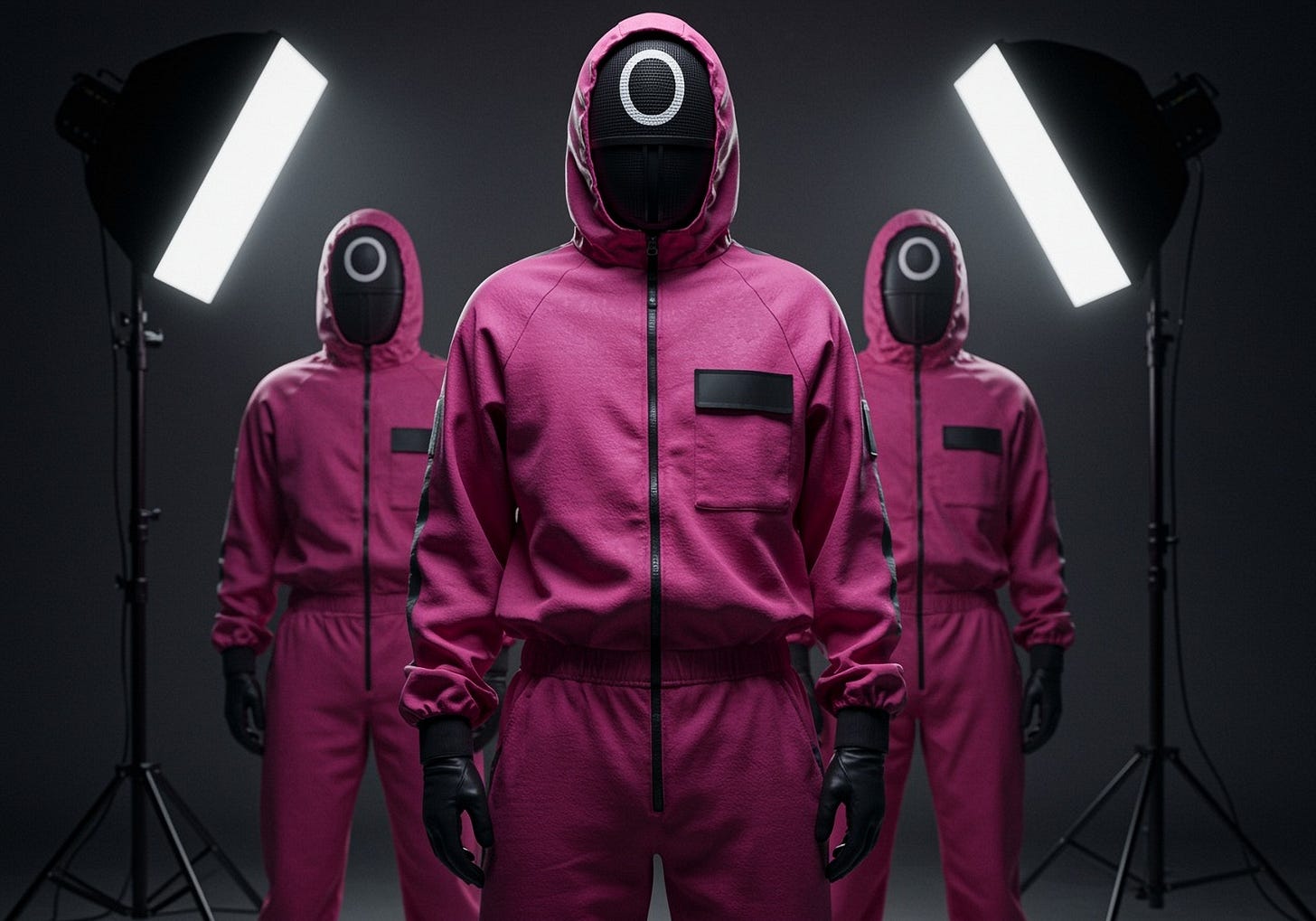You Win. You're Free. Or Are You?
Why success might feel hollow - and what Squid Game, Ibsen, and real life can teach us about it.
“Do you know what someone who doesn’t have any money has in common with someone who has too much? Living is no fun for either of them.”
That line hit harder than any of the show’s violence. Because whether you are at rock bottom or sitting on a pile of wins, it cuts to the same question:
What if getting everything still leaves you empty?
A new season of Squid Game just dropped. I haven’t finished the finale yet - but if it’s anything like the first two, it will be brilliant, disturbing, and thought provoking.
Have you watched it? It became Netflix’s most-watched series, so chances are high you have heard of it. It follows a group of financially desperate individuals who are lured into a deadly competition of children’s games for a massive cash prize. It is a bit gruesome at times so perhaps it is not for everyone, but it does a great job at exploring different themes - from morality, greed, inequality to choice and free will.
But at its core, you could argue that it’s about the illusion of freedom. The idea that if you just win the game – the job, the deal, the number, the house, the partner, and so forth, you’ll finally be free. Sound familiar?
I won’t spoil the show and there are plenty of interesting dialogues but at one point one of the characters says, “do you know what someone who doesn’t have any money has in common with someone with too much money to know what to do with? Living is no fun for either of them. If you have too much money, no matter what you buy, eat, or drink, everything gets boring in the end.”
The dialogue between the two characters aims to show the discontent that can accompany both extreme hardship and extreme abundance. One group will suffer from the stress of survival, while the other may feel a lack of purpose, boredom, and alienation from genuine human experiences.
I was blessed to live in Oslo for a while, just off a street named after Henrik Ibsen - the famous Norwegian playwright who understood long before Netflix did that getting what you want doesn’t guarantee a happy ending. The characters he created often grappled with disappointment of achieving societal expectations or personal goals only to find themselves unfulfilled.
Ibsen is associated with the paradox of two types of misfortunes: not having everything one desires and having everything one desires. Ibsen suggested the second is often worse, because, once people have everything, they thought would make them happy, they may realise that material possessions or achieved goals do not bring lasting fulfilment or meaning.
If Only I Had [Insert Here] ...
There does seem to be some truth in that. It feels like we all fall for the illusion of freedom that the world sells us. In my case it was the belief that if I just achieve that number of profits from different ventures, I will be free, for others it might be something completely different, ultimately its individual. Whether it’s getting promoted, buying a bigger house, moving to a nicer neighbourhood, sending the kids to a better school, finding the right person to walk through life with, fitting into the right social circle, or something completely different, we think once we get that we will finally feel free and happy.
These desires or goals are all good and natural, but if we are honest, we know how the story often ends. Even when we get what we thought we wanted, we find ourselves searching again, chasing the next thing that promises freedom.
So, what now?
Don’t get me wrong, I am not saying that money doesn’t buy happiness. Well, it doesn’t really buy happiness, it makes a lot of things easier. Or that you shouldn’t have goals or be ambitious. Quite the opposite. I still believe in building things and pushing yourself across a range of fields.
But I noticed that individuals who consciously embrace values like simplicity, purpose, and service are often more calm, fulfilled and happy. Interestingly historical personalities that seem to have been happy or found inner peace were often less among the rich and powerful. Take for example, Albert Einstein, who revolutionised physics, but never sought fame or fortune. It appears that he was simply doing what he loved. You could say he found or created his purpose.
What’s the one thing you believe will finally set you free?
And what if that freedom doesn’t come from getting it - but from letting go of the need for it?
Not in a passive way. But in a grounded, steady, clear-headed way.
That shift - from needing to chasing to choosing - might just be what freedom actually looks like.
Much love,
Peter
And if you know someone navigating similar reflections – feel free to share it.






This resonated because I’ve been there! Chased the shiny things, achieved “success” and then realised there’s more to life. I’m still ambitious and going after things but it’s rooted in service and holding space. You also reminded me to watch the new Squid Games season!